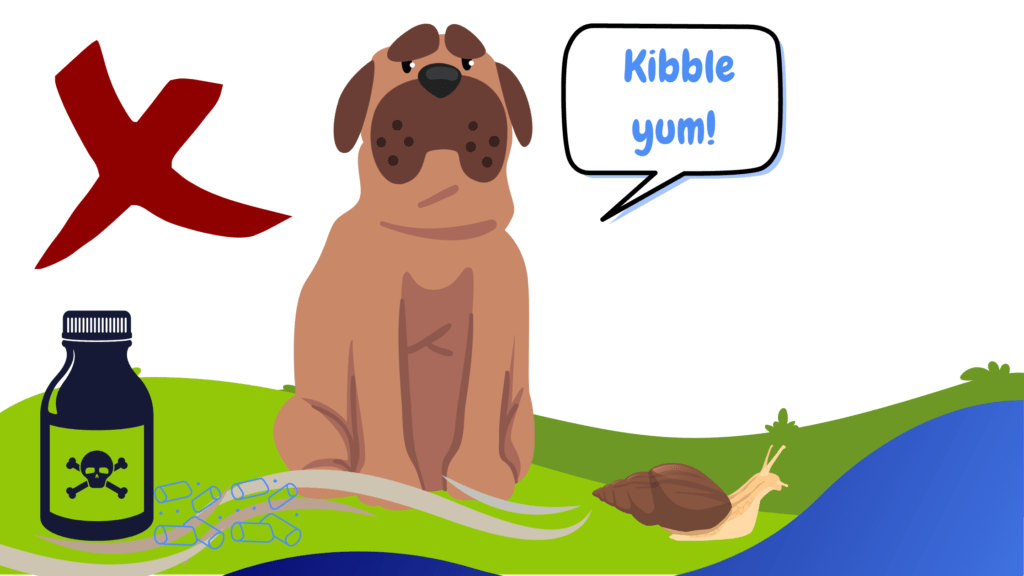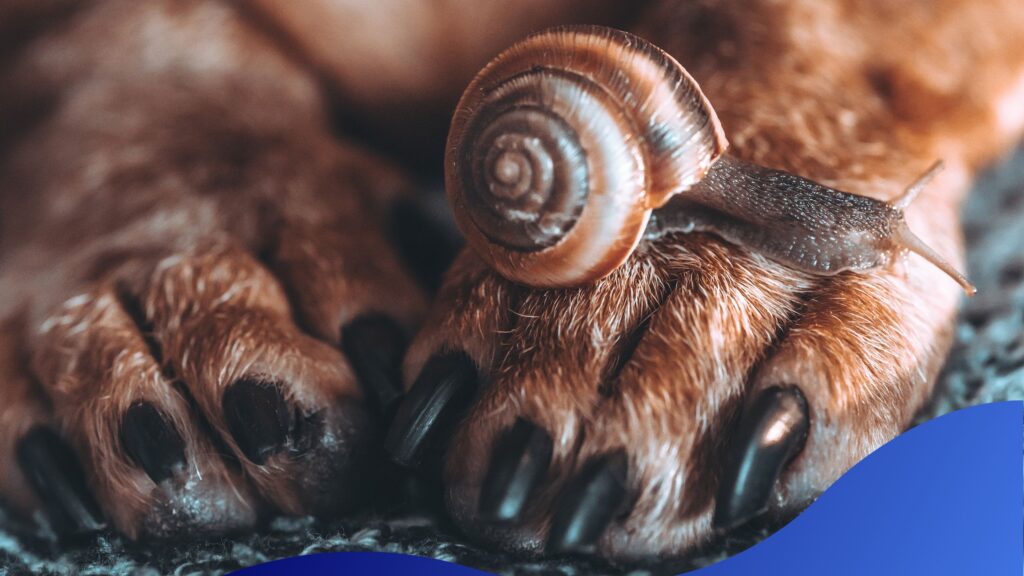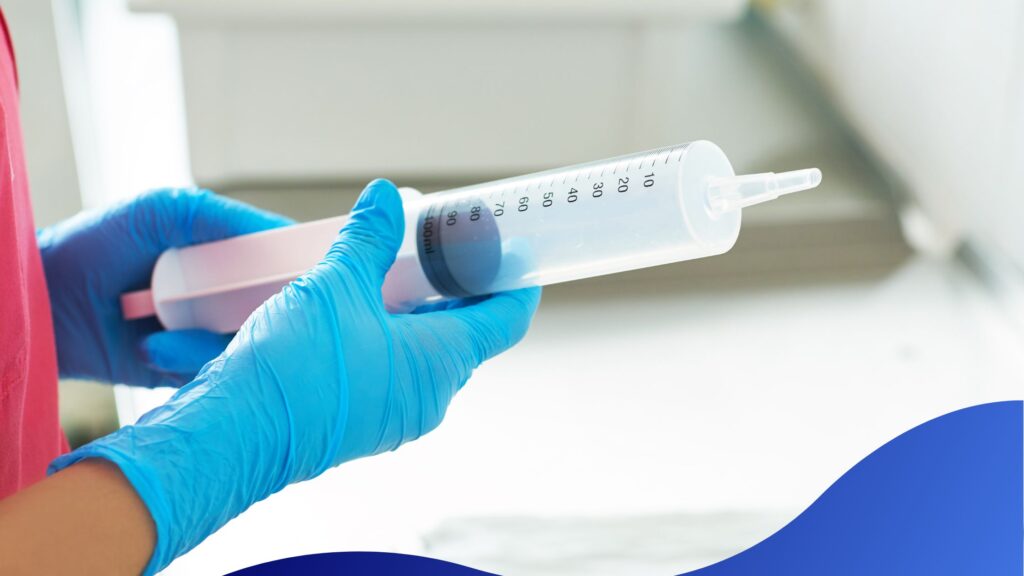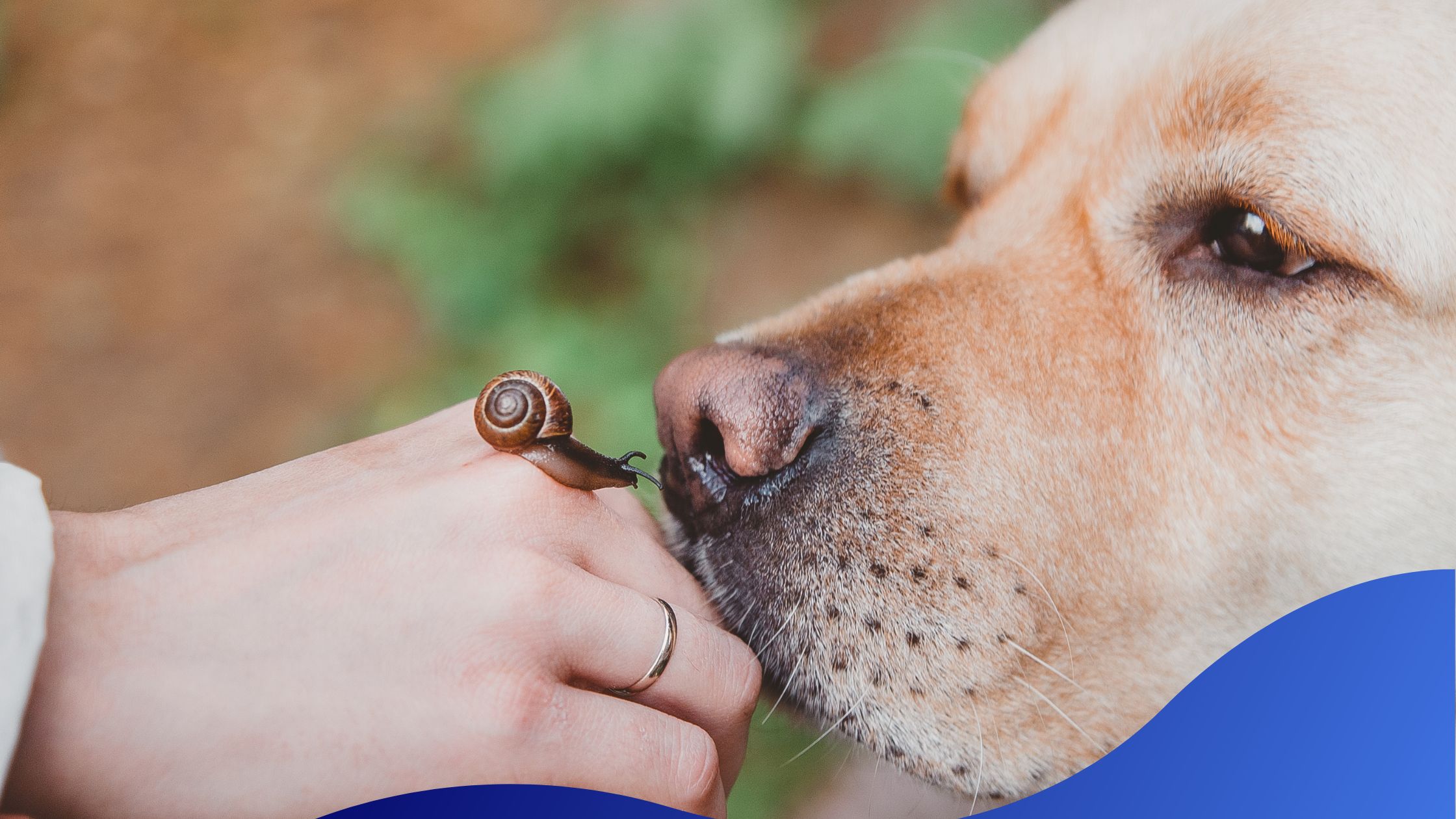Snail bait poisoning continues to be a frequent toxicity issue for dogs in any area where snails are common garden pests.
Snail bait is typically formulated in pellets and flavored with molasses or bran to attract snails. Unfortunately, the pellets resemble kibbled dog food and the molasses and bran are also attractive to dogs. Snail baits are also available as liquids and powders that can get onto paws and be licked off in normal grooming.
What is Snail and Slug Bait Poisoning?
Many commercial preparations for killing slugs and snails contain a chemical called metaldehyde. These pellets, designed to attract destructive mollusks such as slugs and snails, and then poison them, are also attractive and lethal to many other birds and mammals. Metaldehyde is a potent neurotoxin and can be lethal at just one teaspoon per ten pounds of weight.
Ingestion of this chemical can be lethal in just a few hours and should be considered an emergency, if you suspect your dog has digested snail or slug bait, please contact us immediately.

What are the symptoms of snail and slug bait poisoning?
Symptoms of metaldehyde poisoning from eating slug and snail bait are usually apparent within 1- 4 hours after eating the substance. These symptoms can include:
What causes snail and slug bait poisoning?
Metaldehyde poisoning in dogs is primarily caused by ingestion of snail and slug bait pellets, however, skin and eye irritation can occur on contact and it is also toxic by inhalation. Many pellets are formulated with ingredients that make them attractive to slugs and snails, such as apples and molasses, which makes them attractive to most animals.

Diagnosing Slug and Snail Bait Poisoning in Dogs?
Diagnosis is based on the development of the expected signs and history of known or suspected slug or snail bait exposure. Metaldehyde levels in the blood, urine, stomach, or liver can be measured in the laboratory. Blood tests may be performed to rule out other possible causes of the animal’s signs and to monitor for complications requiring further treatment. Abdominal X-rays can sometimes show prey in the stomach or intestines.
How is Slug and snail bait (metaldehyde) poisoning treated?
Decontamination and early treatment reduce the risk of serious symptoms. If ingestion occurs within an hour of treatment, the veterinarian may induce vomiting. Never induce vomiting at home as this can make the situation worse if not done correctly. Once vomiting is controlled, activated charcoal can be used to reduce the absorption of metaldehyde from the gastrointestinal tract, Activated charcoal should only be used by a veterinarian because complications, including aspiration to the lungs and life-threatening changes in blood sodium levels, can occur.
If your pet is not stable enough to induce vomiting, gastric lavage (pumping of the stomach) may be performed. Your pet will need to be anesthetised and a tube will be passed into their stomach to flush the stomach with fluid to retrieve the metaldehyde.

Gastric Lavage
There is no antidote for metaldehyde, but supportive care can treat the signs and help prevent more serious complications.
Fluids and medications may be needed to control tremors or seizures. Cooling measures to reduce body temperature are often necessary. Blood tests are usually done to monitor the function of the liver and other organs. Liver support medications may be given. In severe cases, heavy sedation or anesthesia may be needed to control tremors and seizures. Treatment may be required for several days.
How can slug and snail bait poisoning be prevented?
Use with caution:
The use of slug and snail baits containing metaldehyde should be avoided in any area that can be accessed by your pets.
Use alternatives:
To control slugs and snails without the use of chemicals, many gardeners use broken shells, lava rock, or other rough materials to deter slugs from the area. You can place copper bands around plants or plant lavender, mint, or rosemary to discourage slugs and snails.
Slug/snail bait products containing iron phosphate instead of metaldehyde are considered safer for pets. These baits are still potentially toxic due to the iron content, but much larger doses are required to cause poisoning.
If your suspect your pet is suffering from slug or snail bait poisoning…
Thanks for reading, until next time…

